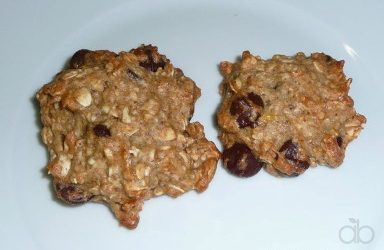Aarti Batavia | Nutrition Wellness Consulting
Nourish and nurture your inner being
Functional Medicine
What is Functional Medicine?
Functional medicine addresses the underlying causes of disease, using a systems-oriented approach and engaging both patient and practitioner in a therapeutic partnership. It is an evolution in the practice of medicine that better addresses the healthcare needs of the 21st century. By shifting the traditional disease-centered focus of medical practice to a more patient-centered approach, functional medicine addresses the whole person, not just an isolated set of symptoms. Functional medicine practitioners spend time with their patients, listening to their histories and looking at the interactions among genetic, environmental, and lifestyle factors that can influence long-term health and complex, chronic disease. In this way, functional medicine supports the unique expression of health and vitality for each individual.
Aarti has received her training from the Institute of Functional Medicine and is an IFM Certified Practitioner.
Click here to set up an appointment with Aarti.
WHY DO WE NEED FUNCTIONAL MEDICINE?
- Our society is experiencing a sharp increase in the number of people who suffer from complex, chronic diseases such as diabetes, heart disease, cancer, mental illness, and autoimmune disorders like rheumatoid arthritis.
- The system of medicine practiced by most physicians is oriented toward acute care, the diagnosis and treatment of trauma or illness that is of short duration and in need of urgent care, such as appendicitis or a broken leg. Physicians apply specific, prescribed treatments such as drugs or surgery that aim to treat the immediate problem or symptom.
- Unfortunately, the acute-care approach to medicine lacks the proper methodology and tools for preventing and treating complex, chronic disease. In most cases it does not take into account the unique genetic makeup of each individual or factors such as environmental exposures to toxins and the aspects of today’s lifestyle that have a direct influence on the rise in chronic disease in modern Western society.
- There’s a huge gap between research and the way doctors practice. The gap between emerging research in basic sciences and integration into medical practice is enormous—as long as 50 years—particularly in the area of complex, chronic illness.
- Most physicians are not adequately trained to assess the underlying causes of complex, chronic disease and to apply strategies such as nutrition, diet, and exercise to both treat and prevent these illnesses in their patients.
HOW IS FUNCTIONAL MEDICINE DIFFERENT?
Functional medicine involves understanding the origins, prevention, and treatment of complex, chronic disease. Hallmarks of a functional medicine approach include:
- Patient-centered care. The focus of functional medicine is on patient-centered care, promoting health as a positive vitality, beyond just the absence of disease. By listening to the patient and learning his or her story, the practitioner brings the patient into the discovery process and tailors treatments that address the individual’s unique needs.
- An integrative, science-based healthcare approach. Functional medicine practitioners look “upstream” to consider the complex web of interactions in the patient’s history, physiology, and lifestyle that can lead to illness. The unique genetic makeup of each patient is considered, along with both internal (mind, body, and spirit) and external (physical and social environment) factors that affect total functioning.
- Integrating best medical practices. Functional medicine integrates traditional Western medical practices with what is sometimes considered “alternative” or “integrative” medicine, creating a focus on prevention through nutrition, diet, and exercise; use of the latest laboratory testing and other diagnostic techniques; and prescribed combinations of drugs and/or botanical medicines, supplements, therapeutic diets, detoxification programs, or stress-management techniques.
STAY CONNECTED!
Welcome MyPlate (Thali), Goodbye MyPyramid!
On June 2nd, First Lady Michelle Obama , Agriculture Secretary Tom Vilsack and Surgeon General Regina Benjamin unveiled a new icon to complement the 2010 Dietary Guidelines for Americans . The new symbol for healthy eating called MyPlate will help consumers make...
How to use over-ripe bananas
After the last blog, a few of my freinds asked for what else can be done with over-ripe bananas. Here is a list of suggestions, if ever you are stuck with a "problem" of Overripe Bananas. Thanks to my friends and my RD colleagues who helped me with this list. 1. ...
Banny Cranny Cookies
A dozen ain't enuf! Facebook Status: "What do I do with a dozen of over-ripe bananas?" To solve this Gordian task, my friends did come to rescue with over a dozen of creative suggestions. This made me think...a dozen ain't enough! To keep it simple, I used some in my...
A Hoisin Slant
A Hoisin Slant Are you bored of cooking the same sauce or curry for dinner? How about trying a sauce with a Hoisin Slant? Hey… what’s a hoisin (hoi.sin) sauce? Well, hoisin sauce is like a Chinese barbecue sauce, thick, pungent and sweet. It is used in Asian...



